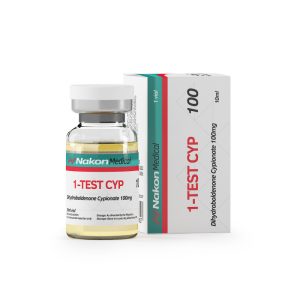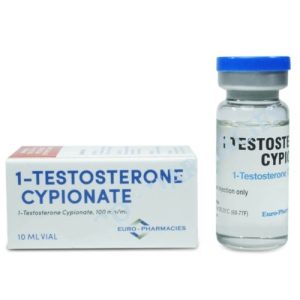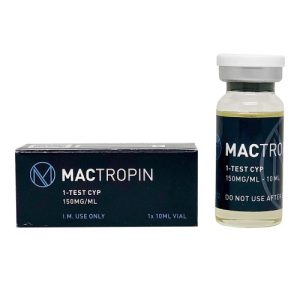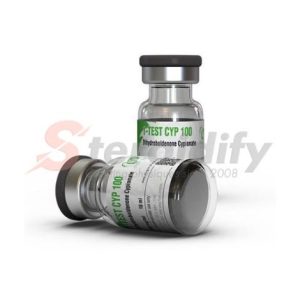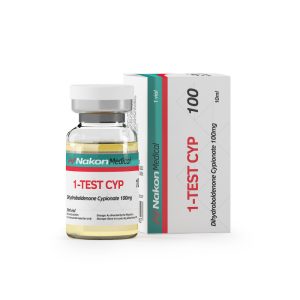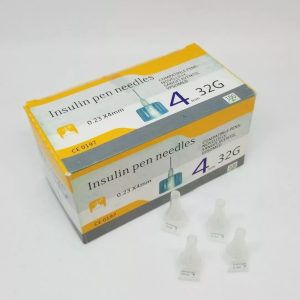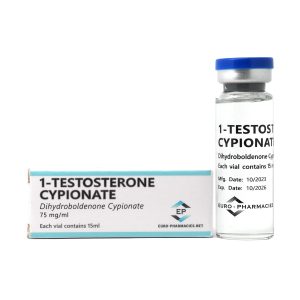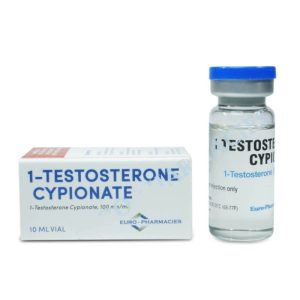Growth hormone and bodybuilding
Growth hormone (somatotropin, somatotropic hormone, HGH, STH) is a peptide hormone produced by the pituitary gland. The amount of somatotropin in the body peaks during childhood. At a young age, growth hormone in the body is responsible for the growth of tubular bones, muscles and other tissues. With age, growth hormone production declines steadily, as does the production of IGF-1 (insulin-like growth factor), which is directly linked to human growth hormone production. In the human body, IGF-1 is responsible for repairing damaged cells and producing new ones. At puberty, the human body generally stops producing muscle cells, and their number remains constant for the rest of life. Human growth hormone (HGH) is the only hormone that contributes to the formation of new muscle cells in the body. By taking HGH, you can therefore modify your genetics to obtain high-density muscles.
Growth hormone preparations were first used for medical purposes, but are now widely used in sport, as they rapidly reduce body fat, increase muscle volume and shorten the recovery time needed between exercises.
In 1989, the Olympic Committee recognised that somatotropin was a doping agent and banned its use. But its sales have multiplied in recent years. Growth hormone is widely used in bodybuilding, in combination with other anabolic supplements, increasing the effectiveness of the courses.
For bodybuilders, growth hormone (Hetropin) is the only substance that forms new muscle cells and then gives them the ability to train. Growth hormone accelerates protein synthesis, causing muscle cells to hypertrophy, increasing muscle elasticity and shaping the relief of the athlete’s muscle mass. Improved physical condition – reduced subcutaneous fat, increased lean muscle mass in athletes – is what makes growth hormone so popular and attractive.
Thanks to growth hormone, muscle strength and metabolism increase, athletes feel more active and body fat decreases. The weight an athlete gains from growth hormone is simply muscle mass. The weight gained by an athlete thanks to growth hormone is solely muscle mass. Weight gain is slower than when using steroids, around 1.5 to 2 kg per month. When steroids are used, weight gain is mainly due to the increase in fluids in the body, whereas when growth hormone is used, only muscle mass increases. Growth hormone also burns fat mass and provides the necessary energy. In this respect, bodybuilders cannot restrict their diet, as weight will only be gained at the expense of muscle mass, not fat tissue.
Growth hormone also acts to reduce the number and frequency of injuries, which is due to somatotropin’s ability to strengthen tissues such as bones and connective tissue (cartilage, ligaments, tendons). This increases the speed of recovery and healing of body tissues after injury.
In several experiments, it was found that the use of growth hormone does not affect strength and endurance, and even slightly lowers the fatigue threshold and slows recovery. These factors make somatotropin ineffective and useless for athletes in sports where these indicators are important.
Advantages of growth hormone
- Efficacy
- Few side effects
- The drug does not affect potency
- Does not cause side effects
- Does not require post-cycle treatment
Disadvantages of growth hormone
- Fairly high price
Effects of wachstumshormone
- Increases protein synthesis, leading to muscle hypertrophy and hyperplasia
- Accelerates the burning of fat cells in the body, converting them into energy
- Speeds up the formation and renewal of connective tissue, the structural part of cells
- Strengthens connective tissue and bones
- Improves skin condition
- Helps regulate carbohydrate metabolism
- Increases insulin efficiency
- Boosts the body’s immune response (immunity)
Side effects
As the human body produces its own growth hormone, side effects from growth hormone are very rare. They may occur when the recommended doses and duration of use are exceeded, and each organism reacts to the administration of growth hormone in a very individual way.
- Hypoglycaemia – high production of insulin in the body and low blood glucose levels.
- Acromegaly – abnormal bone growth in patients predisposed to this disease.
- Abdominal hypertrophy – in the event of non-compliance with the recommendations for taking the drug.
- Tunnel syndrome – limits the motor activity of the hand if the recommendations for use of the medicine are not followed.
- Pain – occurs temporarily during growth processes.
Growth hormone stimulants
- Adequate sleep
- Physical activity
- Consumption of the amino acid Arginine
- Consumption of the amino acid glutamine
- Consumption of protein
- Regular meals without fasting
- Creatine to increase IGF-1 production
Showing 1–9 of 5303 results


